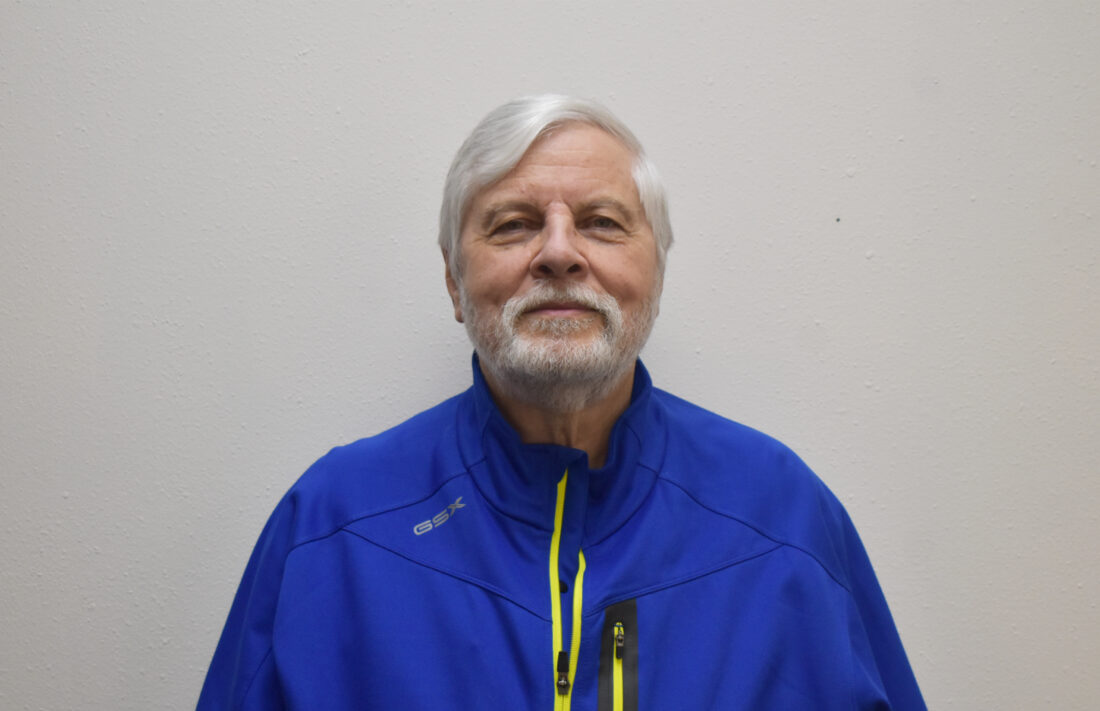Fairmont Psychologist marking 50 years

ABOVE: Clinical Psychologist Joseph Switras has now served the community of Fairmont for 50 years, and plans to do so for as long as possible.
FAIRMONT – Fairmont Clinical Psychologist Joseph Switras has served the community for 50 years.
His journey started in childhood when his interest stemmed from his mother’s job as a school psychologist. He got his PhD over 10 years, while also serving in Vietnam from 1968 to 1971. By 1975, Switras said he hit the ground running.
“I got hired to start a three-county mental health program from scratch,” he said. “I started Martin County, then I did Faribault County, and then I did Watonwan County. It was fun hiring the staff and designing the paperwork.”
By 1979, Switras started his own practice. From then until 2021, he maintained it and worked with thousands of people. He then closed his practice after his wife got sick, choosing to work at United Hospital District (UHD) where he treats people to this day. Being a psychologist is something Switras tells people is different from what it has looked like on TV.
“The first thing I tell them, ‘It’s not like The Bob Newhart Show,'” he said. “This is different. I get a lot of intake paperwork because that saves time. Then I go through it and establish why you may be coming in, get their goals. Once I’ve got their goals, I develop a plan. Then you got to stick to the plan.”
From where psychology was when he started to where it is now, Switras said neuroscience has developed and assisted greatly with psychotherapy.
“The addition of neuroscience, as that’s evolved, has made things more understandable,” he said. “If a patient comes in, the vast majority of the time I can tell them exactly what’s going on in their head. Not their thoughts, but how the brain works. They’re not accidents. They’re not random events. We are mechanisms. If you understand how it works, you can tinker with and improve it.”
While 50 years is a large period of time for a given career field, Switras said some things haven’t changed over the years.
“The diagnostic process,” he said. “You got to do an accurate diagnosis. You get history and interviews and tests. It’s no different than what a mechanic does with a car or your physician does when he’s looking at what’s going on with you medically. You have to study each person so you understand what’s going on. Then you can intervene.”
Working for a hospital instead of for himself has come with its fair share of changes. He said he doesn’t have to deal with insurance companies, but he also doesn’t have his staff. Before he worked six to seven days a week, often on paperwork. Now he works three days a week.
Through it all, Switras has been straightforward in what motivates him day-to-day.
“I love the people,” he said. “I like the process. When I see somebody they’re, in a way they’re like a jigsaw puzzle but all the pieces are invisible. I have to find all the pieces, put them together, see what that looks like, and figure out what to do about it.”
What he gets great enjoyment out of is being able to see people through to where they want to be.
“As people get better, I think that’s great,” Switras said. “I always tell everyone that comes in, when you are where you want to be, kick me to the curb. You will not hurt my feelings. It will make me feel good that you’re where you want to be.”
With his military experience in mind, Switras also has a unique perspective working with veterans and their PTSD.
“A lot of people who are working with people with PTSD have never been there,” he said. “They don’t know what they’re hearing and that’s why veterans don’t usually talk a lot. “When they come in to see me, they know I’ve been there, done that. I have my own PTSD so they don’t have to talk a lot. I know what they’re talking about.”
As for the future, Switras said he only has one plan.
“To practice until I keel over,” he said. “I see no reason to retire.”


